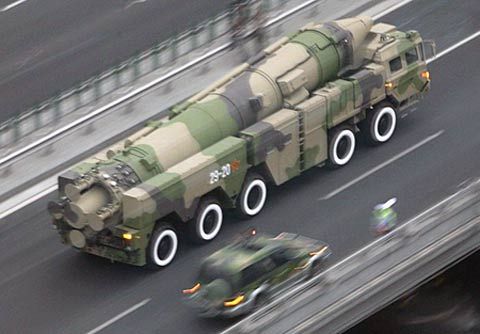The Kremlin on Friday raised the possibility of quitting the Intermediate-Range Nuclear Forces Treaty signed between Moscow and Washington in late 1980s, citing new threats facing Russia.
 The Kremlin on Friday raised the possibility of quitting the Intermediate-Range Nuclear Forces Treaty signed between Moscow and Washington in late 1980s, citing new threats facing Russia.
The Kremlin on Friday raised the possibility of quitting the Intermediate-Range Nuclear Forces Treaty signed between Moscow and Washington in late 1980s, citing new threats facing Russia.
"On the one hand, we've signed the agreement, we will obey it. But that could not last forever," Chief of Staff of the Presidential Administration Sergey Ivanov told national Vesti-24 TV Channel.
The United States never needs the middle-range and tactical missiles as they could only target "Mexico or Canada," while Russia is now facing the threat of mid-range missiles from dozens of neighboring countries, he said.
In 1987, the United States and the former Soviet Union signed the treaty, which eliminated nuclear and conventional ground- launched ballistic and cruise missiles with intermediate ranges, defined as between 500 to 5,500 km.
Ivanov stressed that Russian President Vladimir Putin has called that treaty "disputable."
"For the United States, that system had not been crucial, they could not use it. But for the Soviet Union, for modern Russia, the decision was disputable," Putin said on Wednesday, adding that now Moscow has to face the reality.
"Not only the United States, but also other countries are busy improving their offensive weapons, including mid-range missiles. Practically all our neighbors develop these systems," he said.
Also on Wednesday, Moscow said it cannot welcome U.S. President Barack Obama's proposal of cutting Russian and U.S. strategic nuclear arsenals up to a third.